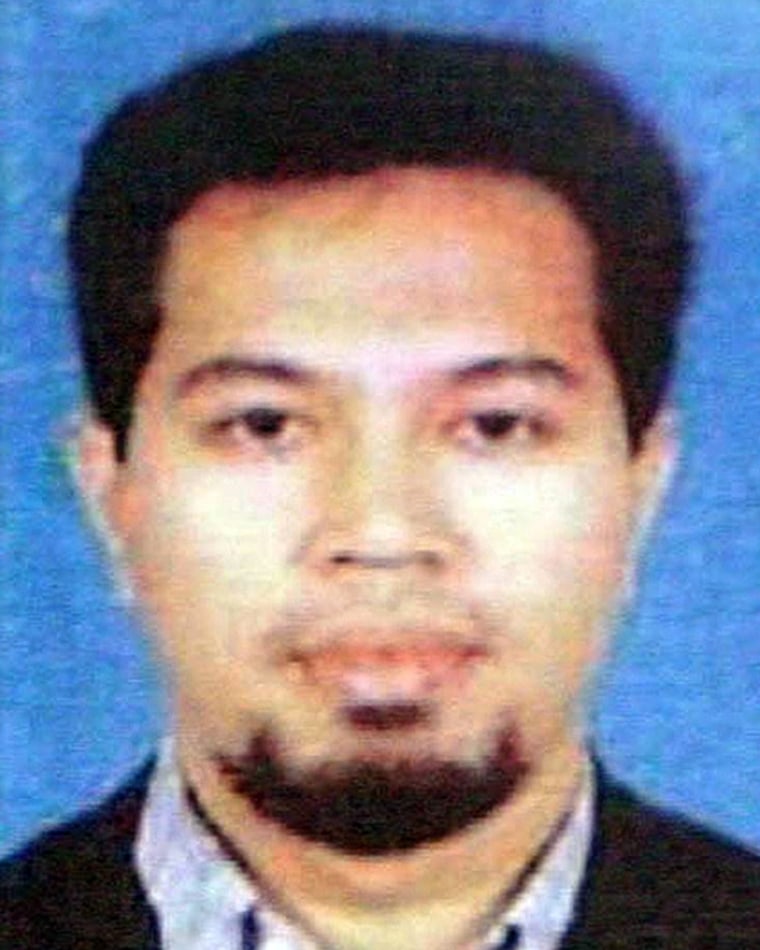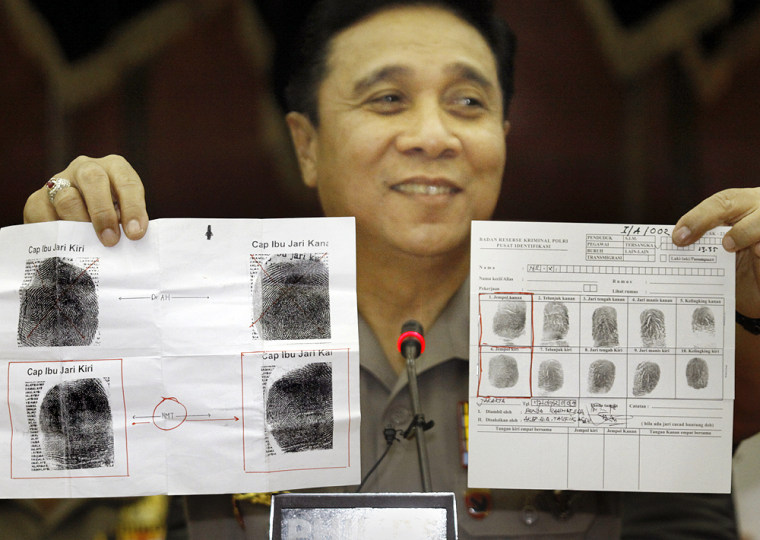Noordin Top, a regional terrorism mastermind who eluded capture for nine years and is blamed for a string of deadly attacks in Indonesia, was killed during a raid in central Indonesia, the police chief said Thursday.
Police hunting for suspects in recent bombings raided a hide-out in central Indonesia, sparking gunfire and an explosion Thursday that left four suspected militants dead, he said, including the Malaysian fugitive. Three alleged terrorists also were captured.
Malaysian-born Noordin, who set up a violent splinter group of regional militant network Jemaah Islamiyah, was widely considered the mastermind of the bombings of two luxury hotels in Jakarta in July, as well as other attacks in Bali and in Jakarta, which have killed scores of Westerners and Indonesians.
Noordin's remains were found at a house on the outskirts of the town of Solo, in central Java, said national police chief Bambang Hendarso Danuri.
Fingerprints in a police database matched the body to Noordin, he said.
"It is Noordin M. Top," he told a nationally televised news conference to the cheers from the audience. "He is leader of al-Qaida in Southeast Asia."
Pregnant woman among those captured
A counterterrorism official told The Associated Press the dead also included alleged bomb-maker Bagus Budi Pranato. The captured militants included a pregnant woman who was being treated at a hospital, national police spokesman Nanan Sukarna said.
Police tracked the seven suspects to Solo and besieged a village house on the outskirts overnight. The raid ended near daybreak when an explosion was detonated inside the home, the spokesman said.

The operation left behind a charred house with no roof and blown-out walls. The bodies were flown to Jakarta for autopsies.
Hundreds of pounds of explosives, weapons, grenades and bombs were recovered from the scene as ambulances shuttled away the dead and injured.
Indonesia, Southeast Asia's biggest economy and the world's most populous Muslim country, has been under intense pressure to capture or kill Noordin ahead of President Barack Obama's visit in November.
"It's a huge blow for the extremist organizations in Indonesia and the region," said Sidney Jones, an expert on Islamic militants with the International Crisis Group.
Police have been searching for several people believed to be behind the near-simultaneous attacks on the Ritz-Carlton and JW Marriott hotels on July 17 in which nine people, including two suicide bombers, were killed and 53 wounded.
The July bomb attacks in Jakarta ended a four-year lull in militant attacks in Indonesia. Subsequent police investigations showed that Noordin's group of militants had planned to assassinate President Yudhoyono at his home using a suicide truck bomb.
Noordin, a key recruiter, strategist and financier for Jemaah Islamiyah, has been on the run for years, eluding capture on several occasions.
He and his associates often used safe houses in Central Java as hideouts, helped by a network of sympathizers in the area, and relied on couriers, rather than easily tracked mobile phones, to communicate with his cells.
More on: Indonesia
